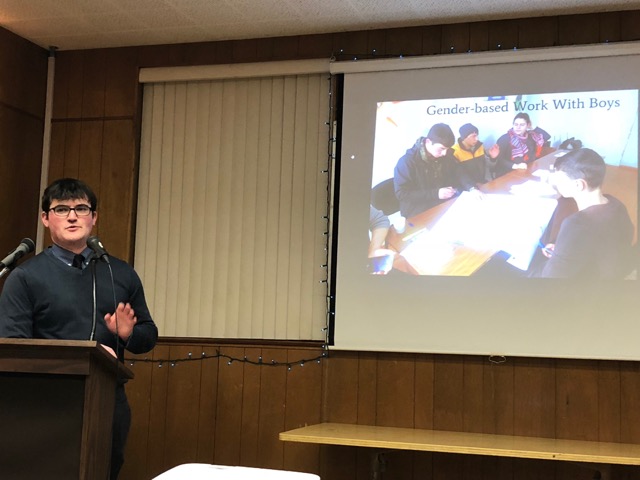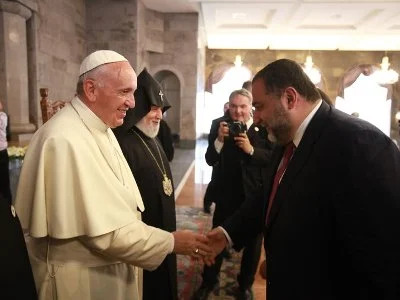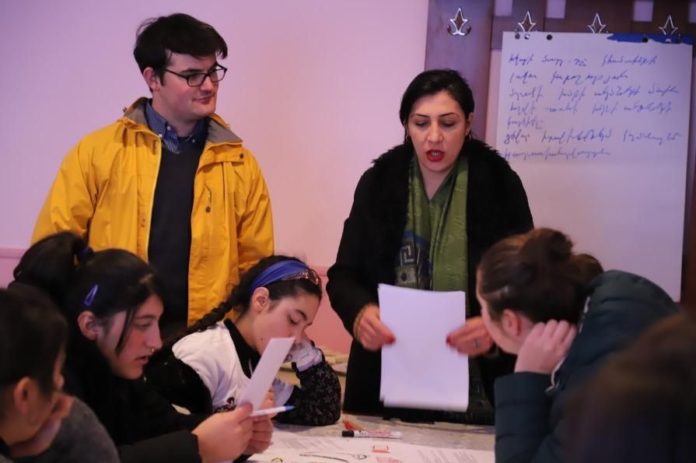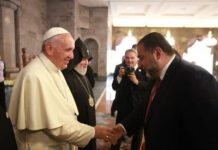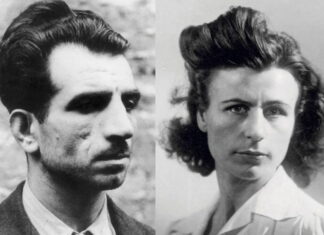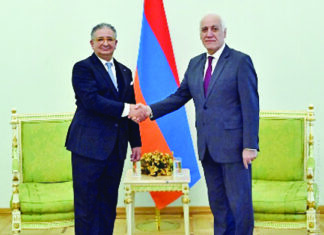By Judith Saryan
BELMONT, Mass. – It wasn’t just the Armenian delicacies Nick Pittman tasted at his friend Laura Zarougian’s house while growing up in Cambridge that led him to consider Armenia for his Peace Corps service, but they definitely came to mind. It was also the challenge of learning a new language and alphabet and discovering a new part of the world, as he explained in his talk, “Grassroots Development in Rural Armenia: Challenges, opportunities, and Lessons Learned,” as part of the National Association for Armenian Studies and Research (NAASR) and Calouste Gulbenkian Foundation Series on Contemporary Armenian Issues, held at NAASR on January 18.
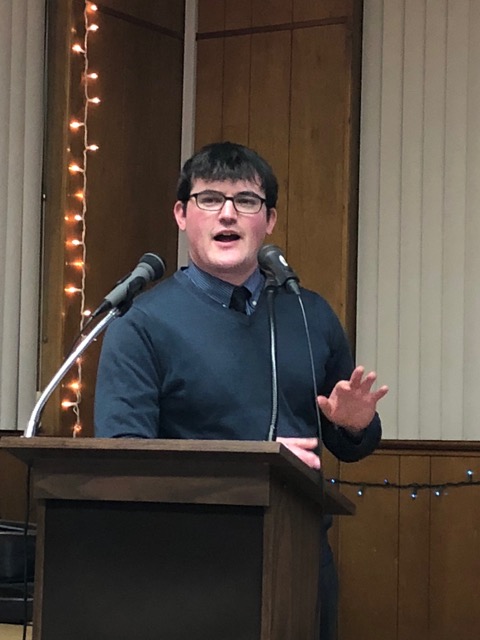
Most people don’t realize that Peace Corps Volunteers can now express a preference for where they want to serve and apply for an opening. A graduate in economics from Reed College, Nick arrived in Armenia in the spring of 2016 and jumped into intense language and work training.
After a stint in Sarnaghpyur, he settled in Margahovit in Lori Province in northern Armenia as a community and youth development volunteer and worked closely with a small grassroots NGO that focuses on youth empowerment. There are a total of 70 Peace Corps Volunteers in Armenia, who all work in rural areas or secondary cities like Gyumri and Vanadzor, Nick explained. Roughly one third are youth and NGO development volunteers, and two thirds teaching English as a Foreign Language (TEFL) volunteers.
After the mandatory three-month home stay after training, most volunteers move into
their own housing and work with local partners to develop and implement projects. Peace Corps Volunteers are welcomed in rural Armenia since they increase opportunities for personal advancement by bringing valuable skills, such as English-language education and organizational training. Young people in these communities are eager to get a good education and participate in programs the Peace Corps offers in conjunction with local organizations. Many of these enrichment programs emphasize creative thinking, including the English-language writing contest held each year called “ Write On ”.
Nick emphasized that Armenia is rich in human resources although limited in financial or
physical resources. The lack of paying jobs for villagers across the rural landscape often leads to seasonal migration to Russia.
